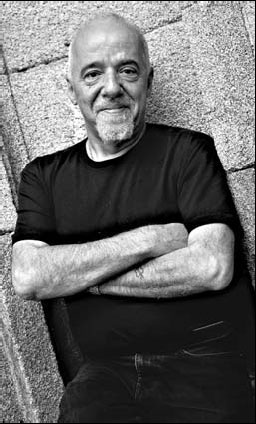Best-selling writer pirates his own books
Updated: 2011-10-09 07:58
By Julie Bosman(The New York Times)
|
|||||||
Years ago, Paulo Coelho, the 64-year-old Brazilian novelist, upended conventional wisdom by pirating his work, making it available online in countries where it was not easily found, using the argument that ideas should be disseminated free.
|
The author Paulo Coelho has 2.4 million Twitter followers. Vittorio Zunino Celotto / Getty Images |
More recently he has proved that authors can build audiences by reaching out to readers through social media. He ignites conversations about his work by discussing it with his fans while he is writing.
That philosophy has helped him sell tens of millions of books, most prominently "The Alchemist," an allegorical novel that has been on the New York Times best-seller list for 194 weeks.
Last month, Mr. Coelho released his latest novel, "Aleph," the story of his own epiphany while on a pilgrimage through Asia in 2006 on the Trans-Siberian Railway. (Aleph is the first letter of the Hebrew alphabet, with many mystical meanings.) While Mr. Coelho spent four years gathering material for the book, he wrote it in only three weeks.
Spreading the word about the book should be easy; he has become a sort of Twitter mystic, writing messages in English and Portuguese and building a following of 2.4 million people.
In 2010 Forbes named him the second-most-influential celebrity on Twitter, behind Justin Bieber.
Mr. Coelho continues to give his work away by linking to Web sites that have posted his books, asking only that if readers like the book, they buy a copy, "so we can tell to the industry that sharing contents is not life threatening to the book business," as he wrote in one post. From his home in Geneva, Mr. Coelho discussed his work. Following are edited excerpts.
Q. The protagonist of your new novel, "Aleph," sounds familiar: best-selling author, world traveler, spiritual seeker. How autobiographical is this book?
A. One hundred percent. These are my whole experiences, meaning everything that is real is real. I had to summarize much of it. But in fact I see the book as my journey myself, not as a fiction book but as a nonfiction book.
Q. Your most famous book, "The Alchemist," has sold 65 million copies worldwide. Does its continuing success surprise you?
A. Of course. It's difficult to explain why. I think you can have 10,000 explanations for failure, but no good explanation for success.
Q. You've also had success distributing your work free. You're famous for posting pirated version of your books online, a very unorthodox move.
A. I saw the first pirated edition of one of my books, so I said I'm going to post it online. There was a difficult moment in Russia; they didn't have much paper. I put this first copy online and I sold, in the first year, 10,000 copies there. And in the second year it jumped to 100,000 copies. Then I started putting other books online, knowing that if people read a little bit and they like it, they are going to buy the book. My sales were growing and growing.
Q. And now you're a writer with one of the most prominent profiles online. Are you a Twitter addict?
A. Yes, I confess, in public. I tweet in the morning and the evening. To write 12 hours a day, there is a moment when you're really tired. It's my relaxing time. Once I found this possibility to use Twitter and Facebook and my blog to connect to my readers, I'm going to use it, to connect to them and to share thoughts that I cannot use in the book. Today I have on Facebook six million people . It's unbelievable.
Q. The title of the book, "Aleph," mirrors the name of a short story by Borges. Were you influenced by him?
A. He is my icon, the best writer in the world of my generation. But I wasn't influenced by him, I was influenced by the idea of aleph, the concept. In the classic tradition of spiritual books Borges summarizes very, very well the idea of this point where everything becomes one thing only.
Q. When did you decide to become a writer?
A. It took me 40 years to write my first book. I was not encouraged to follow the career of a writer because my parents thought that I was going to starve to death. They thought nobody can make a living from being a writer in Brazil. They were not wrong. But I still had this call, this urge to express myself in writing.
The New York Times
(China Daily 10/09/2011 page12)
